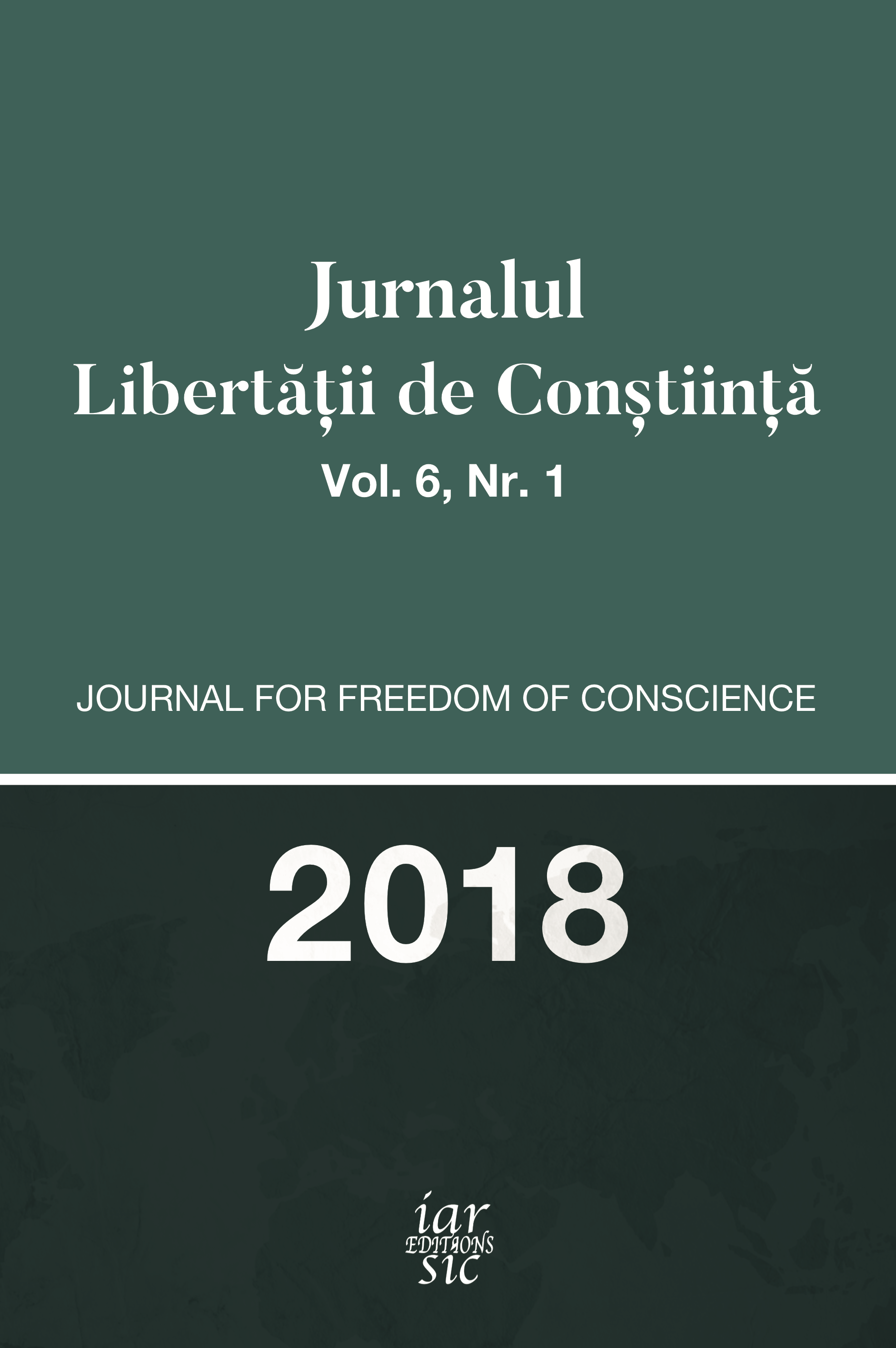L’ADOZIONE PER LA PRIMA VOLTA NEL TERRITORIO RUMENO, NEL PRINCIPATO DELLA TRANSILVANIA, DEL PRINCIPIO DELLA LIBERTÀ RELIGIOSA E DEL SUO SVILUPPO IN UN TEMPO RELATIVAMENTE BREVE DI 25 ANNI (DIETA DI CLUJ, 1543 — DIETA DI TURDA, 1568)
The First Adoption of the Principle of Freedom of Belief and its Surging Evolution over the span of 25 Years on Romanian Land, in Transylvania (Cluj, 1543 – Torda, 1568)
Author(s): Ioan-Gheorghe RotaruSubject(s): Law, Constitution, Jurisprudence, Human Rights and Humanitarian Law
Published by: Editions IARSIC
Keywords: Principality of Transylvania; Transylvania diets; freedom of religion; received religion;
Summary/Abstract: Given the fact that this year we commemorate the 450th anniversary of the Torda Tolerance Edict in 1568, it is only appropriate to make some preliminary remarks. In the Principality of Transylvania, the regulation and the development of the principle of freedom of religion have several stages. Thus, in 1543, the Assembly of the country, the Cluj-Torda Diet, proclaimed, in Transylvania, for the first time in the world, the principle of freedom of religion. The text adopted by the Diet had one simple provision: “all shall remain firm in the faith received from God, without harming each other”. The text adopted by the Diet was represented the fundament for the official recognition of the Lutheran Church during the 1550 Diet, as a first important proof of freedom of religion in the principality. The Diet of the Principality, reunited in Torda in 1557, decided: “that all should keep the faith they believe in, with the new or old ceremonies; in respect to faith, they shall be free to believe as they wish, but without harming others”. Under these circumstances, we witness, for the first time in Europe, the refinement of the principle of freedom of religion, stipulating that faith is “the gift of God” and that every human being is free to believe as s/he wishes and that no one is to be harmed in manifesting her/his faith. One can notice an evolution of the legislation concerning freedom of religion. The Transylvanian Diets from 1564 take a step forward by completing and improving the principle of freedom of religion and recognizing a third “received” religion, Calvinism, and in 1568, the Diet also recognizes the Unitarian church among the “received” religions. Therefore, the Transylvanian diets, from Transylvania’s Diet reunited in Cluj (1543) to the Transylvania’s Diet in Torda (1568), from the first enunciation of the principle of freedom of religion until its presentation in a greatly improved form, indicates that within only 25 years, this principle developed from some simple legal provisions stipulated in 1543 to a principle greatly improved, with legal implications, in 1568, by adopting the Torda Tolerance Edict. In the span of 25 years, this principle saw an incredible evolution, evolution that we couldn’t find anywhere in Europe at that time.
Journal: Jurnalul Libertății de Conștiință
- Issue Year: 6/2018
- Issue No: 1
- Page Range: 505-531
- Page Count: 27
- Language: Italian

